Delta-like ligand-3 (DLL3) is a single-pass, type I transmembrane protein that inhibits the Notch signaling pathway. A highly conserved intercellular signaling pathway, the Notch signaling pathway controls embryonic development.
Traditionally, the Notch signaling pathway is driven through the DSL family of Notch ligands. However, DLL3 is a different member of the DSL family because the Notch gene in this case contains a mutation.
This mutation leads to the overexpression of DLL3, which results in the inhibition of the subsequent Notch signaling pathway in the DLL3-expressing cell and does not instigate the Notch pathway in neighboring cells.
| Spotlight Summary |
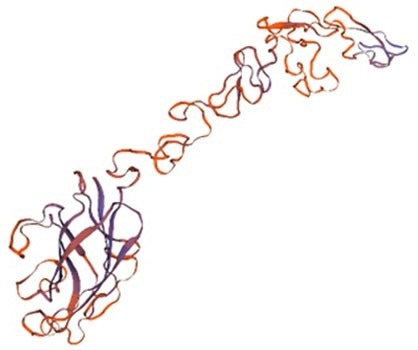 |
| Protein Name |
DLL3, Delta-like canonical Notch ligand 3 |
| Molecular Weight* |
50.4 kDa |
| AA Length |
619 |
| Accession # |
Q9NYJ7-1 |
Biological significance
This Notch pathway dysregulation by DLL3 leads to cell proliferation and decreased apoptosis, leading to tumorigenesis. The main effects of DLL3 on the Notch signaling pathway are as follows:
- DLL3 – Notch 1 binding: This binding inhibits the Notch signaling pathway and leads to the down-regulation of HEY1 and HES1, which are both involved in regulating tumor cells.
- DLL3 – Notch 2 binding: This binding leads to the up-regulation of expression levels of cell cycle proteins to enhance cell cycle protein expression.
- DLL3-Notch2-Notch4 binding: This binding facilitates cell proliferation and differentiation in ovarian cancer.
Generally, DLL3 can bind to various Notch receptors and serve many functions in cell proliferation, differentiation, and apoptosis. However, in different disease types, the expression of Notch receptors regulated by DLL3 may differ with the same subsequent effect of driving tumor growth.
As a result, clarification of the interplay between Notch receptors and DLL3 in various tumorigenesis applications continues to be a key milestone in biological research.
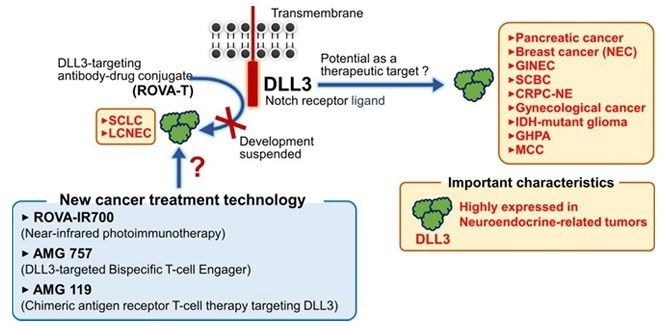
Figure 1. Potential Modalities to Target DLL3-expressing Cells. Image Credit: ACROBiosystems
Clinical significance and applications
Although the biological function of DLL3 and its involvement in Notch signaling is unclear, clinically, DLL3 is a clear biomarker for small cell lung cancer (SCLC) with its overexpression in more than 75% of SCLC clinical trial populations.
Notch mutations that direct DLL3 expression are exclusive to the lung, highlighting the role of DLL as a biomarker for SCLC.
As a result, several therapies have been developed or are currently under development, such as antibody-drug conjugates, bispecific T-cell engagers (BiTEs), and cell therapies, as shown in Table 1.
Table 1. DLL3 drug clinical information. Source: ACROBiosystems

The most promising DLL3 therapeutics are BiTEs, ADCs, and CAR cell therapies, summarized in Figure 2. Each of these approaches targets DLL3, but instead of directly inhibiting DLL3 and its biological role, they utilize DLL3 as a homing target for identifying SCLC and other cancerous cells.
As a result of the specificity of DLL3 expression on SCLC cells, these therapies can precisely and accurately recognize cancerous cells without impacting healthy, non-cancerous cells.
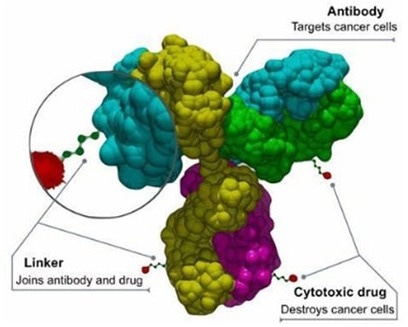
Image Credit: ACROBiosystems
Antibody-drug conjugates (ADCs)
Antibody-drug conjugates are antibodies that have a cytotoxic payload. Utilization of an anti-DLL3 antibody as the targeting method enables cytotoxic payloads, including DXD or MMAE to be precisely delivered to tumor cells that express DLL3.
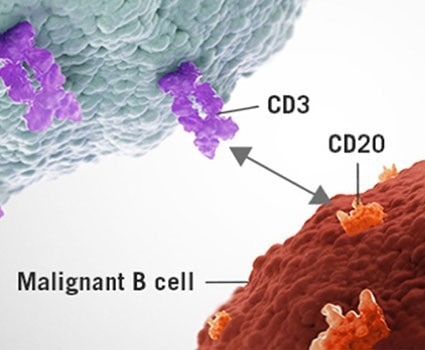
Image Credit: ACROBiosystems
Bispecific T-cell engagers (BiTEs)
Bispecific T cell engagers are a novel type of bispecific antibody that targets CD3 and DLL3. The co-expression of CD3 enables the antibodies to bind to both DLL3-expressing tumor cells and T cells to stimulate antibody-dependent cell cytotoxicity (ADCC).
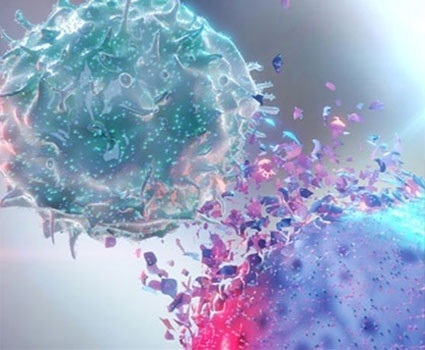
Image Credit: ACROBiosystems
CAR-T/NK cell therapies
Adoptive cell therapies are an alternative targeted immunotherapy using modified T cells to express an scFv complementary to DLL3. This allows T cells or other immune cells to pursue DLL3-expressing tumor cells and cause apoptosis through ADCC.
Conclusion
DLL3 is finally beginning the clinical stage as an emerging biomarker. These biologics require concentrating more on manufacturing, identifying methodologies to scale up antibody production, and optimizing targeting, payload delivery, or enhancing ADCC interactions.
Presently, multiple drugs from different companies are at the start of the clinical stage, with substantial growth in DLL3-targeting drug pipelines, demonstrating that DLL3 is a significant direction for SCLS treatment.
Ahead of the conventionally approved FDA cell therapies that target BCMA and CD19, DLL3 could be the first CAR target that allows cell therapy to fight solid tumors, offering a significant milestone to cell therapies.
However, the lack of biological understanding between Notch and DLL3 impedes its clinical application beyond SCLC.
This is particularly obvious when distinguishing between SCLC and non-SCLC, where contradictory effects are present between DLL3-expressing cells, while still leading to tumorigenesis.
To promote Notch signaling and DLL3 research, both in basic research and biologics manufacturing, ACROBiosystems provides a wide range of Notch 1/2/3/4 protein and DLL3 products that are expressed with the HEK293 expression platform.
Many labels are available, with validated applications such as biopanning, immunization, and biofunctional verification assays.
References and further reading
- Morimoto M, Nishinakamura R, Saga Y, Kopan R. Different assemblies of Notch receptors coordinate the distribution of the major bronchial Clara, ciliated and neuroendocrine cells. Development. 2012;139(23):4365–73.
- Bray SJ. Notch signalling in context. Nat Rev Mol Cell Biol. 2016;17(11):722–35.
- Steinbuck, Martin Peter, and Susan Winandy. "A review of notch processing with new insights into ligand-independent notch signaling in T-cells." Frontiers in immunology 9 (2018): 1230.
- Smit MAD, Borghaei H, Owonikoko TK, et al. Phase 1 study of AMG 757, a half-life extended bispecific T cell engager (BiTE) antibody construct targeting DLL3, in patients with small cell lung cancer (SCLC). J Clin Oncol. 2019;37:TPS8577.
- Frederickson RM. A new era of innovation for CAR T-cell therapy. Mol Ther. 2015;23:1795-1796.
About ACROBiosystems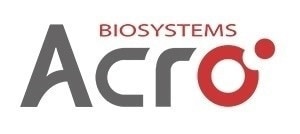
ACROBiosystems is a cornerstone enterprise of the pharmaceutical and biotechnology industries. Their mission is to help overcome challenges with innovative tools and solutions from discovery to the clinic. They supply life science tools designed to be used in discovery research and scalable to the clinical phase and beyond. By consistently adapting to new regulatory challenges and guidelines, ACROBiosystems delivers solutions, whether it comes through recombinant proteins, antibodies, assay kits, GMP-grade reagents, or custom services. ACROBiosystems empower scientists and engineers dedicated towards innovation to simplify and accelerate the development of new, better, and more affordable medicine.
Sponsored Content Policy: News-Medical.net publishes articles and related content that may be derived from sources where we have existing commercial relationships, provided such content adds value to the core editorial ethos of News-Medical.Net which is to educate and inform site visitors interested in medical research, science, medical devices and treatments.